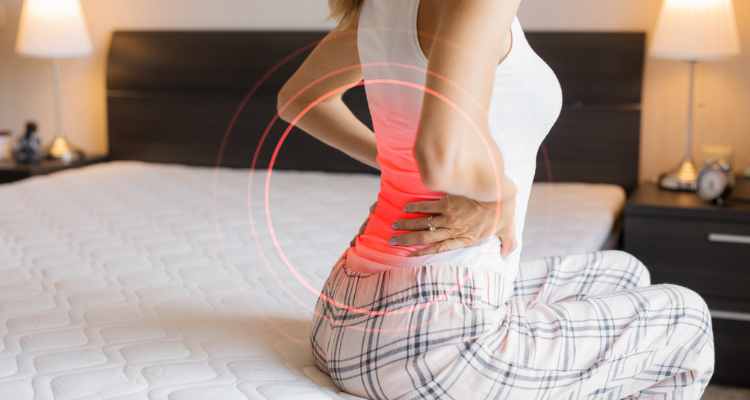Instead of waking up with a good night’s rest, you’re again met with awful back pain. After countless sleepless nights, it warrants a trip to a mattress store to find a new bed to fix the issue. Yet, what type of mattress would help if you’re struggling with back pain? You may have heard from others that firm mattresses are best for back pain. Can one kind of mattress truly correct back pain issues as you sleep? Or is this just a common misconception everyone has? If you’re struggling with back pain as you sleep, find the answers here before you go out mattress shopping.
Origins of Firm Mattresses for Back Pain Relief
The idea that a firm mattress is the best for back pain relief must have come from somewhere. After all, how can most people assume it’s the best type of mattress for it? How everyone came to believe that stems from a study published in 2003 in a British medical journal called The Lancet. According to Clete Kushida, M.D., Ph.D., director of the Stanford University Center for Human Sleep Research, “Orthopedists once recommended sleeping on an extremely firm mattress, but there’s little evidence to support that view.” It took a while for this study from orthopedists to get debunked. Meanwhile, during these years, many believed that firmer was better if you wanted a mattress to help with back pain. Hence, some might still think it’s the best to this day.
The Truth About the Right Mattress for Back Pain
From the same Stanford University Center for Human Sleep Research director, Kushida confirms firm mattresses aren’t always best, stating, “The optimal surface is purely subjective.” Simply put, it doesn’t matter what type of mattress you have as long as it works best for you. But how do you know what type of mattress is best? What do you need to consider when shopping at a mattress store?
The answer? It all comes down to your spinal alignment.
According to Alan Hedge, Ph.D., a professor of ergonomics at Cornell University, “The best mattress supports your spine at all points while allowing it to maintain its natural curve.” So, the secret to finding a mattress to relieve back pain is ensuring your spine is supported as you sleep.
But how can you tell if your spine is well supported?
Thankfully, you can keep a few things in mind as you try out mattresses. There is a Goldilocks method to finding a bed for back pain relief. For instance, you should rule out a mattress that’s too firm if you feel it doesn’t support all your body parts evenly. Too firm of mattresses can lead to discomfort for your hips and shoulders. In this case, you might think a completely soft mattress would be best.
Well, not necessarily.
A mattress that’s too soft for you can cause you to sink into the surface and have a hard time moving, which could cause pressure point problems like tingling, numbness, or aches. Plus, notably for some women, the weight of their hips can cause them to sink further into the bed while their upper back doesn’t. As a result, the spine is not properly supported, creating lower back pain.
The Consensus on Mattresses for Back Pain
As established, the best approach to finding a mattress to remedy your back pain is to ensure your back is properly supported. Therefore, mattresses with varying degrees of firmness and softness can help fix it since everyone is different. Yet, a good rule of thumb when looking for a bed to help alleviate back pain is to try out mattresses with said Goldilocks approach as a starting point and go from there.
The best way is to try either too firm or soft since you can easily rule out what works and doesn’t. For example, you try an incredibly firm mattress and notice discomfort in your shoulders. From there, you can assume a softer mattress would be best – but not by completely going for an extremely soft one! Steadily increase the degree of softness until you feel well-supported and comfortable. You can do the inverse by starting with an immensely soft mattress and then gradually increasing firmness levels until you find the right one.
Back pain from your mattress can seriously impact your sleep quality, compromising your overall health. Being informed about what mattresses truly work for back pain can make it easier to find the right bed and lead to better night sleeps moving forward.

